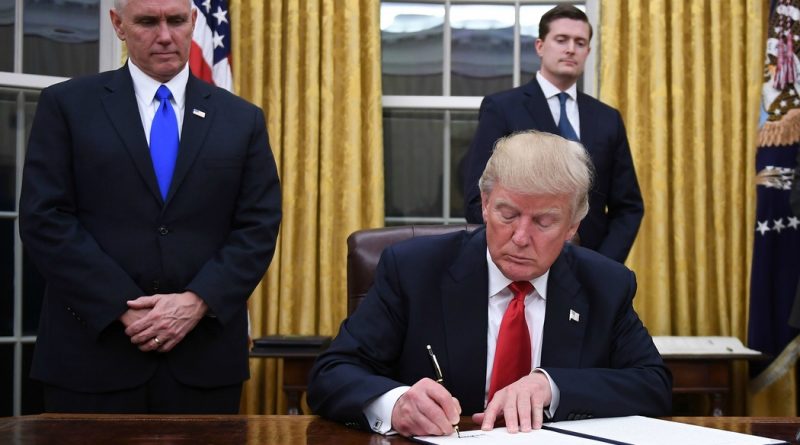POTUS Travel Ban And What It Means For Students At UD
By: Neil Burger – Staff Writer
The Supreme Court partially lifted the lower court decisions on blocking President Donald Trump’s executive order Monday. Effectively banning immigration and refugees from countries deemed to be “terror prone”.
The executive order called for immigration to be suspended for 90 days, halting the intake of refugees for 120 days in Iran, Libya, Somalia, Sudan, Syria, and Yemen.
In other ✈️ news…University of Dayton States #WeAreStillIn
Iraq was originally included, but was removed in the revised travel ban Trump implemented in March.
However, exceptions have been made by the court to allow for some individuals to enter from countries on the banned list. In order to qualify for an exemption from the ban, an individual must have a “bona fide relationship with any person or entity in the United States.”
Examples include employment with a company in the U.S., attending school in the U.S., wishing to visit or stay with close family members that reside in the U.S. as a citizen or holding green card status, being on a diplomatic mission, or being in need of urgent medical care.
This means that any University of Dayton students from these countries are still able to continue their studies at UD with no hindrances and are still able to find internships and jobs.

The families of students from the banned countries may not be as fortunate.
Family members that are allowed to come to the U.S. include parents, children, siblings, spouses, fiancès and parent-in-laws.
Other family members, such as aunts, uncles, grandparents, grandchildren, nieces, nephews, cousins, brother/sister-in-laws, and other extended family are not permitted to enter. Families of UD students will continue to be inconvenienced by the ban until 90 day period has expired which is scheduled towards the end of September.
Supporters and opponents of the travel ban have mixed emotions in regards to the Supreme Court’s decision.
Many supporters of the ban are applauding the Supreme Court’s decision and consider it a victory, but are unhappy that the ban has not been allowed to continue in full.
Opponents of the ban are certainly unhappy that the ban is being allowed at all, but can at least look towards the exemptions made as a mark of progress.
Both sides of the issue may still want to hold their breath, as this decision by the Supreme Court is not the final one.
The Supreme Court will be hearing oral arguments for the full case on the ban come this fall.
Photo Courtesy of cnn.com and arstechinca.com

